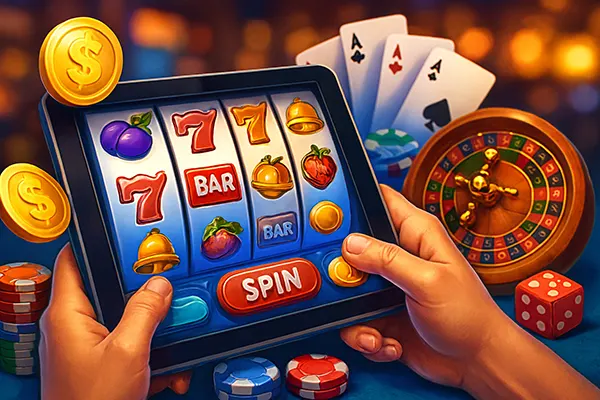Social Casinos: A Future Without Real Money Betting or Just a Trend?

Social casinos have rapidly become one of the most discussed formats in online entertainment. While they mimic the structure and gameplay of real-money gambling platforms, social casinos do not offer monetary rewards. Instead, they provide virtual coins or chips, primarily for fun and social interaction. But is this just a fleeting trend, or does it represent a fundamental shift in how users engage with casino-style games?
The Mechanics Behind Social Casinos
Social casinos function without real money transactions tied to winnings. Players use virtual currency that can either be earned through gameplay or purchased via in-app transactions. This model effectively removes the gambling element in a legal sense, allowing social casinos to operate in jurisdictions with strict gambling laws.
These platforms are often hosted on social networks or mobile apps, where players can invite friends, share achievements, and engage in community challenges. The gameplay closely resembles that of traditional slots, poker, roulette, and other popular titles—just without the cash prizes.
The appeal lies in their accessibility and perceived safety. Users are drawn to the experience without the financial risks. This makes social casinos particularly attractive to casual players and demographics typically underrepresented in traditional gambling environments, such as younger adults and women.
Revenue Models and User Behaviour
Despite the absence of real-money betting, social casinos are highly profitable. They generate revenue through the sale of virtual goods, in-app purchases, and advertising. According to Statista, the social casino market surpassed $7 billion globally by early 2025, showcasing consistent year-on-year growth.
Players often spend money to unlock new features, receive bonus coins, or customise avatars. While there is no chance to win real currency, the psychological triggers of gambling—like near-misses and jackpots—are still present, creating strong engagement loops.
Critics argue this monetisation method exploits similar behavioural patterns seen in real gambling. However, developers counter that users are fully aware of the non-monetary nature of these games, making their participation voluntary and entertainment-focused.
Legal Implications and Regulation
Since social casinos do not provide real-money payouts, they are not classified as gambling in many jurisdictions. This allows them to bypass strict licensing requirements and operate in countries where traditional online casinos are banned.
Nonetheless, this regulatory grey area is under increasing scrutiny. Authorities in the United States and Europe are beginning to evaluate whether prolonged playtime and microtransactions in social casinos could lead to problematic gaming behaviour, especially among minors.
In 2023, Australia became one of the first countries to propose legislation targeting social casinos, with a bill suggesting age restrictions and expenditure caps. Although no law has been passed yet, it reflects growing global concern over user protection in non-gambling gaming environments.
Ethical Debates and Player Protection
Industry experts are calling for clearer ethical guidelines around the design of social casinos. The use of gambling-like mechanics without transparent odds or spending limits can blur the line between entertainment and addiction, particularly for vulnerable users.
Some developers have voluntarily introduced features like playtime reminders, spending trackers, and optional self-exclusion tools. These are viewed as early steps toward responsible gameplay principles tailored to this unique sector.
Still, the debate continues: should platforms that simulate gambling carry the same responsibilities as real-money operators? Until clearer regulations are introduced, this question will remain central to the future of the industry.

Market Outlook and Long-Term Sustainability
The social casino industry is expected to grow further, fuelled by technological advancements and shifting user preferences. Integration with VR and AR platforms may offer even more immersive experiences, increasing user engagement and retention.
Big players like Zynga, SciPlay, and Huuuge Games are investing heavily in innovation, seeking to dominate this evolving landscape. Meanwhile, new startups are entering the market with niche offerings that combine social gaming and casino mechanics with other genres like puzzles or trivia.
Yet the long-term sustainability of the sector will depend on how well it adapts to societal expectations. Transparency, data protection, and mental health considerations will play a vital role in shaping user trust and loyalty.
Trend or Transformation?
While some see social casinos as a temporary offshoot of the gambling industry, current data suggests otherwise. With over 200 million active users worldwide and a strong foothold in markets like the US, India, and Southeast Asia, the format appears to be more than a trend.
The real challenge lies in maintaining user interest without financial incentives. This has led developers to innovate through narrative-driven content, social challenges, and collaborative in-game features that build community value over time.
Ultimately, whether social casinos replace real-money gambling or coexist as a complementary format remains to be seen. However, their current trajectory indicates they are here to stay—and may even redefine what “casino” entertainment means in the digital era.
